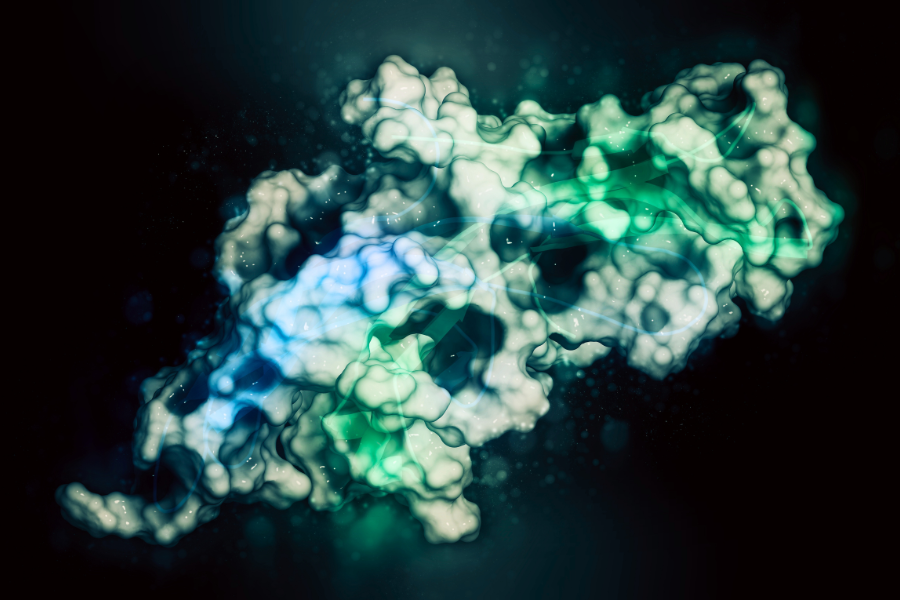Protein sequencing testing services in a Laboratory
Your need: analyse and understand protein sequences to optimise your biopharmaceutical processes
In biopharmaceutical products development, understanding the sequence of proteins is essential to guarantee product quality and treatment efficacy. Our expertise meets your most demanding requirements, by integrating tailor-made solutions.
What is protein sequencing?
Protein sequencing involves determining the order of amino acids in a protein, a key step in understanding its structure and function. In the biopharmaceutical industry, it is used to guarantee the quality of biomedicines, identify post-translational modifications and predict essential biological interactions.
The steps involved in protein sequencing
From the precise determination of the sequence to the study of specific modifications, each phase offers information to better understand and exploit proteins in your processes.
- Sequence determination: precisely identify the amino acid sequence of a protein using advanced techniques such as mass spectrometry (MS/MS).
- Analysis and encoding: obtaining and encoding the sequence for functional studies or for the production of recombinant proteins.
- Cleavage and modification: studying signal sequences or specific regions to identify critical modifications or active sites.
Why carry out protein sequencing?
This method provides an in-depth understanding of protein structure and function, enabling the development of innovative and reliable therapeutic solutions. Here are the main reasons for carrying out protein sequencing:
- Precise characterization: to determine the sequence and structural properties of a protein.
- Quality control: compare sequences to detect variations, impurities or contamination.
- Development of biomedicines: optimising therapeutic proteins by analysing critical sequences.
- Fundamental research: understanding the evolution and interactions of proteins in different biological contexts.
Compare and analyse protein sequences
Comparing protein sequences or aligning them with nucleotide sequences enables mutations to be detected, functions to be predicted and the evolution of proteins to be better understood. This includes calculating molecular weight and identifying critical similarities, valuable data for guaranteeing the reliability of biopharmaceutical products.
- Sequence alignment: compare proteins with each other or with nucleotide sequences to predict their function or identify mutations.
- Molecular weight calculations: using sequences to accurately calculate the mass of a protein.
- Evolutionary comparison: analysing similarities between proteins to understand their origin and role.
These comparisons and analyses are not just diagnostic tools: they can also be used to optimise your products and innovate your projects. To meet these needs, discover our specific sequencing services.
FILAB carries out analysis to detect, quantify and characterize your proteins using cutting-edge technologies
Expertise in biopharmaceutical matrices
Our expertise in protein sequencing covers a wide range of matrices:
- Serums and formulated solutions: to guarantee the quality of monoclonal antibodies and biomedicines.
- Cell culture media: analysis of recombinant proteins from expression systems such as CHO cells.
- Biological samples: identification of biomarkers for diagnosis or research.
- Complex extracts: sequencing in plant, agri-food or environmental matrices.
Using cutting-edge technologies, we offer precise analyses tailored to your industrial needs.
Protein sequencing methods
Protein sequencing uses advanced techniques:
Mass Spectrometry (MS/MS) to identify amino acids and their modifications
High-resolution mass spectrometers, coupled with HPLC systems
Enzymatic cleavage to fragment proteins before analysis
These methods meet the quality and reliability requirements of the biopharmaceutical industry.
Our services
Le séquençage pour anticorps thérapeutiques
In the development of therapeutic monoclonal antibodies, sequencing analysis is used to identify the complete sequence of the antibody, detect post-translational modifications such as glycosylation and guarantee the stability of the final product. Analyses are performed on formulated solutions or sera, ensuring compliance with regulatory standards and optimising production processes.
Sequencing for recombinant proteins
For recombinant proteins expressed by CHO cells, sequencing verifies the integrity of the sequence after expression, guarantees the absence of contaminants and validates the purification steps. Analyses carried out on purified culture media speed up the qualification of biomedicines, which are essential in therapeutic treatments or vaccines.
Sequencing for biomarkers
Finally, in the study of biomarkers for diagnosis, sequencing is used to identify and compare proteins present in human blood plasma. This approach makes it possible to identify specific proteins associated with chronic pathologies or cancer, opening the way to the creation of innovative and precise diagnostic tests, suitable for the early detection of diseases.
Our services for proteins
Protein analysis

FAQ
It helps to guarantee the quality and safety of biomedicines by identifying critical sequences, post-translational modifications and any impurities.
We use advanced technologies such as MS/MS mass spectrometry, sequence alignment and structural analysis to deliver accurate, personalised results.
Le séquençage aide à comprendre les mécanismes d'action des protéines, à optimiser les formulations thérapeutiques et à identifier des cibles innovantes pour la recherche biomédicale.








